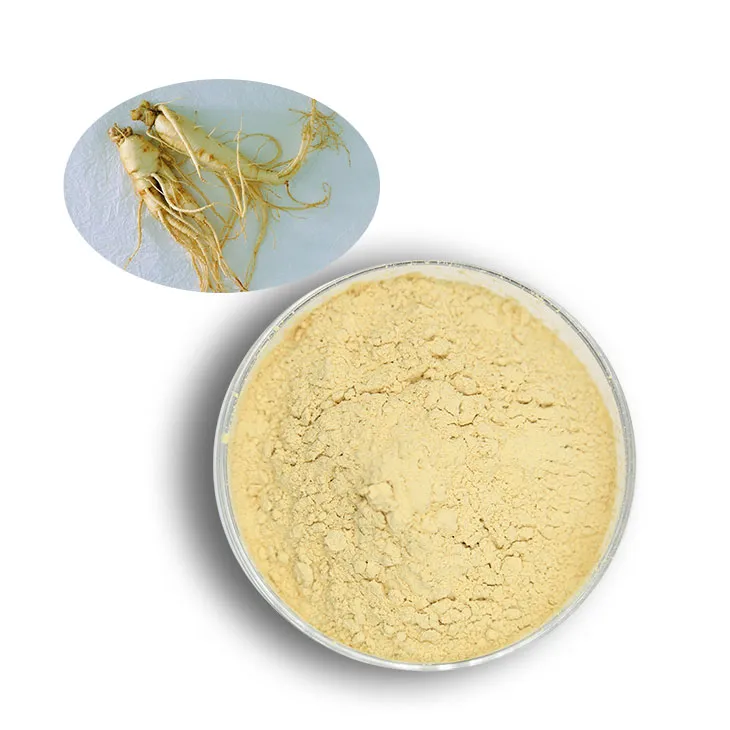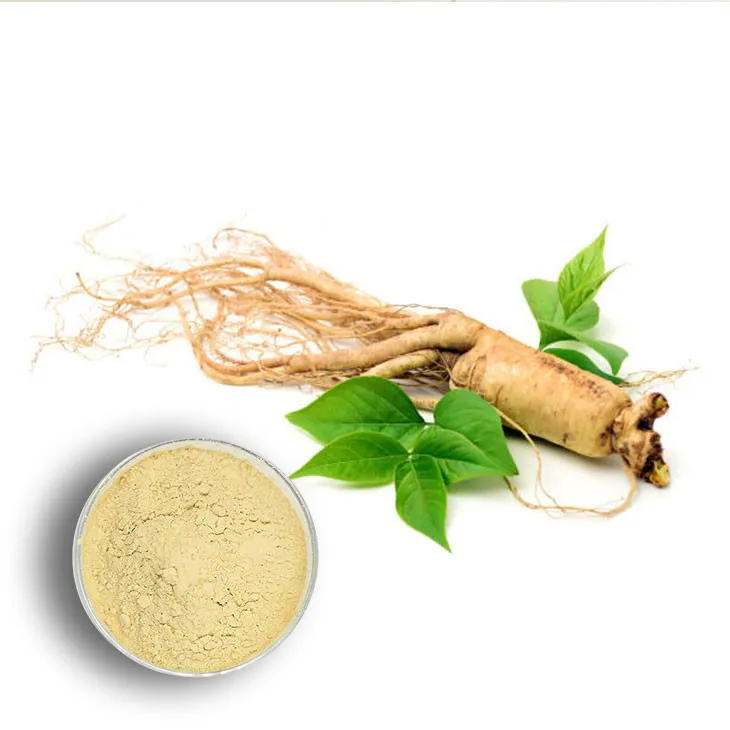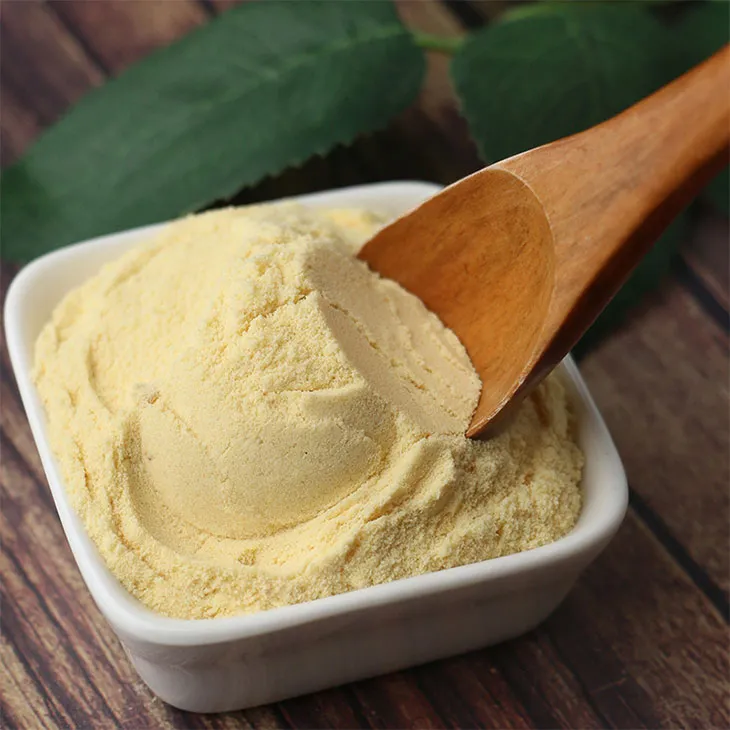- 0086-571-85302990
- sales@greenskybio.com
American ginseng root extract can reduce high blood pressure.
2024-11-12

Introduction
Hypertension, or high blood pressure, is a common and serious health condition that affects a significant portion of the global population. It is a major risk factor for heart disease, stroke, and other cardiovascular problems. In recent years, there has been growing interest in natural remedies for hypertension, and American Ginseng Root Extract has emerged as a potentially promising option. This article will explore the various aspects of American Ginseng Root Extract in relation to reducing high blood pressure, including its impact on blood pressure regulation, the research - backed benefits, and its potential role in hypertension management.

Blood Pressure Regulation Basics
Before delving into the specific effects of American Ginseng Root Extract, it is important to understand the basics of blood pressure regulation. Blood pressure is determined by two main factors: cardiac output (the amount of blood the heart pumps per minute) and peripheral resistance (the resistance in the blood vessels to the flow of blood). When either cardiac output or peripheral resistance increases, blood pressure rises. The body has a complex system of hormones, nerves, and blood vessels that work together to keep blood pressure within a normal range.
The renin - angiotensin - aldosterone system (RAAS) plays a crucial role in blood pressure regulation. When blood pressure drops, the kidneys release renin, which then converts angiotensinogen to angiotensin I. Angiotensin - converting enzyme (ACE) further converts angiotensin I to angiotensin II, a powerful vasoconstrictor that increases peripheral resistance and also stimulates the release of aldosterone. Aldosterone promotes sodium and water retention in the kidneys, increasing blood volume and thus blood pressure.
Another important regulator of blood pressure is the sympathetic nervous system. When activated, it releases norepinephrine, which constricts blood vessels and increases heart rate, both of which can lead to an increase in blood pressure.

American Ginseng Root Extract: Composition and Properties
American ginseng (Panax quinquefolius) has been used in traditional medicine for centuries. The root extract contains a variety of bioactive compounds, including ginsenosides, polysaccharides, and flavonoids.
Ginsenosides
Ginsenosides are the most studied components of American ginseng. They are steroid - like compounds that have been shown to have multiple biological activities. Different ginsenosides may have different effects on the body, and their combination in the root extract is thought to contribute to its overall pharmacological properties.
Polysaccharides
Polysaccharides in American Ginseng Root Extract are believed to have immunomodulatory and antioxidant effects. While their direct role in blood pressure regulation is not as well - established as that of ginsenosides, they may play an indirect role by improving overall health and reducing oxidative stress, which is associated with hypertension.
Flavonoids
Flavonoids are another group of bioactive compounds present in American ginseng. They are known for their antioxidant and anti - inflammatory properties. Oxidative stress and inflammation are involved in the development and progression of hypertension, so the flavonoids in American ginseng may help in preventing or managing high blood pressure through these mechanisms.

Research - Backed Benefits of American Ginseng Root Extract on Blood Pressure
Several scientific studies have investigated the effects of American ginseng root extract on blood pressure, and the results are quite promising.
Animal Studies
In animal models of hypertension, American ginseng root extract has been shown to lower blood pressure. For example, in rats with induced hypertension, treatment with American ginseng extract led to a significant reduction in systolic and diastolic blood pressure. The mechanisms underlying this effect may involve modulation of the RAAS. Some studies have suggested that ginsenosides in the extract can inhibit the activity of ACE, thereby reducing the production of angiotensin II and its vasoconstrictor effects. Additionally, American ginseng may also act on the sympathetic nervous system, reducing the release of norepinephrine and thus decreasing peripheral resistance.
Human Studies
Human studies have also provided evidence of the potential blood - pressure - lowering effects of American ginseng. In some clinical trials, participants who took American ginseng root extract supplements for a certain period showed a modest but significant decrease in blood pressure. For instance, a study involving hypertensive patients found that those who consumed American ginseng extract had a reduction in both systolic and diastolic blood pressure compared to the placebo group. However, more large - scale, long - term human studies are still needed to confirm these findings and to better understand the optimal dosage and duration of treatment.

How American Ginseng Root Extract Could be a Valuable Addition to Hypertension Management
There are several reasons why American ginseng root extract could be a valuable addition to the management of hypertension.
- Complementary to Existing Treatments: For many hypertensive patients, conventional medications are the mainstay of treatment. However, these medications may have side effects. American ginseng root extract may be used as a complementary therapy, potentially reducing the need for higher doses of medications or mitigating some of their side effects. For example, some antihypertensive medications can cause fatigue, and American ginseng's adaptogenic properties may help improve energy levels.
- Overall Health Promotion: In addition to its potential blood - pressure - lowering effects, American ginseng root extract has other health - promoting properties. It can boost the immune system, improve cognitive function, and reduce oxidative stress. By improving overall health, it may contribute to better management of hypertension in the long - run. For example, reducing oxidative stress can help protect the blood vessels from damage, which is important in preventing the progression of hypertension.
- Natural and Accessible Option: Many people prefer natural remedies for health problems, and American ginseng root extract is a natural product. It can be obtained in various forms, such as capsules, tablets, or as a tea. This makes it a convenient option for those who want to incorporate it into their daily health routine.
Conclusion
In conclusion, American ginseng root extract shows promising potential in reducing high blood pressure. Its bioactive compounds, such as ginsenosides, polysaccharides, and flavonoids, may act through multiple mechanisms to regulate blood pressure. While research, especially in humans, is still in progress, the existing evidence from animal and human studies suggests that it could be a valuable addition to hypertension management. However, it is important to note that patients should not replace their prescribed medications with American ginseng root extract without consulting their healthcare providers. Further research is needed to fully understand its long - term effects, optimal dosage, and potential interactions with other medications.
FAQ:
1. How does American ginseng root extract regulate blood pressure?
American ginseng root extract may regulate blood pressure through multiple mechanisms. It may influence the body's hormonal balance, for example, by affecting the levels of stress hormones like cortisol. Also, it might have an impact on the vascular system, helping to relax blood vessels, which in turn can lead to a reduction in blood pressure. Additionally, it could interact with the nervous system to modulate the signals that control blood pressure.
2. What are the research - backed benefits of American ginseng root extract for high blood pressure?
Several research studies have shown that American ginseng root extract can have positive effects on high blood pressure. It has been associated with a decrease in both systolic and diastolic blood pressure values. Some studies suggest that it can improve endothelial function, which is crucial for maintaining healthy blood vessels. Moreover, it may also have antioxidant properties that can protect the blood vessels from damage, which is often related to hypertension.
3. How can American ginseng root extract be incorporated into hypertension management?
American ginseng root extract can be incorporated into hypertension management in various ways. It can be consumed as a dietary supplement in the form of capsules or tablets, following the recommended dosage. Some people may also choose to consume it as a tea. However, it is important to consult a healthcare provider before starting any new supplement, especially for those already on blood pressure medications, as there could be potential interactions.
4. Are there any side effects of using American ginseng root extract for blood pressure control?
While American ginseng root extract is generally considered safe for most people, there can be some side effects. Some individuals may experience digestive issues such as nausea, diarrhea, or stomach upset. In rare cases, it may also cause allergic reactions. Additionally, it could potentially interact with certain medications, so it is crucial to inform your doctor if you plan to use it.
5. How long does it take for American ginseng root extract to show an effect on blood pressure?
The time it takes for American ginseng root extract to show an effect on blood pressure can vary from person to person. Some people may notice a slight change in blood pressure within a few weeks of starting to take it regularly, while for others, it may take several months. It depends on factors such as the individual's overall health, the severity of their hypertension, and their body's response to the extract.
Related literature
- The Effects of American Ginseng on Cardiovascular Health"
- "American Ginseng and Blood Pressure Regulation: A Comprehensive Review"
- "Beneficial Effects of Ginseng Extracts on Hypertension"
- ▶ Hesperidin
- ▶ Citrus Bioflavonoids
- ▶ Plant Extract
- ▶ lycopene
- ▶ Diosmin
- ▶ Grape seed extract
- ▶ Sea buckthorn Juice Powder
- ▶ Fruit Juice Powder
- ▶ Hops Extract
- ▶ Artichoke Extract
- ▶ Mushroom extract
- ▶ Astaxanthin
- ▶ Green Tea Extract
- ▶ Curcumin
- ▶ Horse Chestnut Extract
- ▶ Other Product
- ▶ Boswellia Serrata Extract
- ▶ Resveratrol
- ▶ Marigold Extract
- ▶ Grape Leaf Extract
- ▶ New Product
- ▶ Aminolevulinic acid
- ▶ Cranberry Extract
- ▶ Red Yeast Rice
- ▶ Red Wine Extract
-
Apricot Powder
2024-11-12
-
Oyster Mushroom Extract Powder
2024-11-12
-
Saw Palmetto Extract
2024-11-12
-
Hawthorn powder
2024-11-12
-
Red Date Extract
2024-11-12
-
Horse Chestnut Extract
2024-11-12
-
Reishi mushroom extract
2024-11-12
-
Chaste Berry Extract
2024-11-12
-
Hops Extract
2024-11-12
-
Ivy Extract
2024-11-12





















